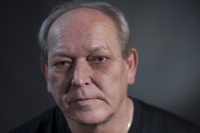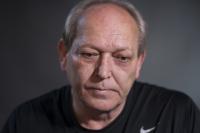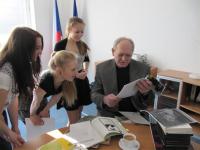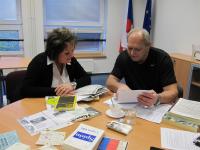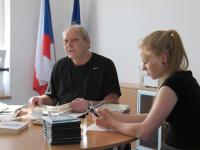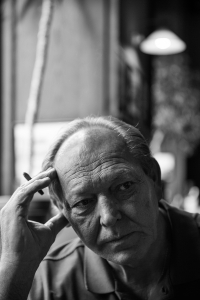I do not want to fear the future

Download image
Stanislav Devátý was born on 8 June 1952 in a town that was then Gottwaldov, (now Zlín). His father was the headmaster of a vocational school in Otrokovice, his mother was a hospital clerk. In 1973 he graduated from a secondary electrotechnical school and began working in Otrokovice. Soon after he transferred to the Communications Assembly Company Prague and worked at a plant in Louky as a measurement technician. In the 1970s he worked as a barman in the pub U Turečků on Kvítková Street. While there, he and his friends founded the amateur football club Cosmos Tureček in 1978. The club’s activities were quite extensive and its membership increased. The hobby club thus found itself under State Security surveillance. Stanislav became acquainted with other active people in the club, such as Bohumil Obdržálek and Jaroslav Němec, who printed and distributed illegal literature. In 1975 Devátý started a family and at the same time lost his job because of his club activities. The family’s dire economic situation and the growing pressure from state authorities forced Devátý’s wife to emigrate to the US in 1980 (taking their five-year-old daughter with her). In 1985 Devátý became a member of VONS (Committee for the Defence of the Unjustly Persecuted) and was consequently fired from his job at the united agricultural co-op in Slušovice. In 1988 he became a spokesman for Charter 77. He was also active in the petition Several Sentences. From 1988 to 1989 he was regularly held in custody by State Security. He never cooperated with his interrogators while in prison, and went on various hunger strikes. In the autumn of 1989 he was sentenced to twenty months in prison. However, due to his health he decided to avoid the punishment, and on 17 September 1989 he escaped to Poland. When he returned to Czechoslovakia on 10 December 1989, he immediately began cooperating with the Zlín organisation of the Civic Forum. In June 1990 he was elected to the Czech part of the House of Nations of the Federal Assembly. After the Civic Forum dissolved he decided to join the Civic Democratic Party. He stayed in parliament until December 1992. He then became chief of the newly founded BIS (Security and Intelligence Service), where he remained until November 1996. He now works in the law firm Toman, Devátý & Partners. In 2023, Stanislav Devátý lived near Zlín as a pensioner.
